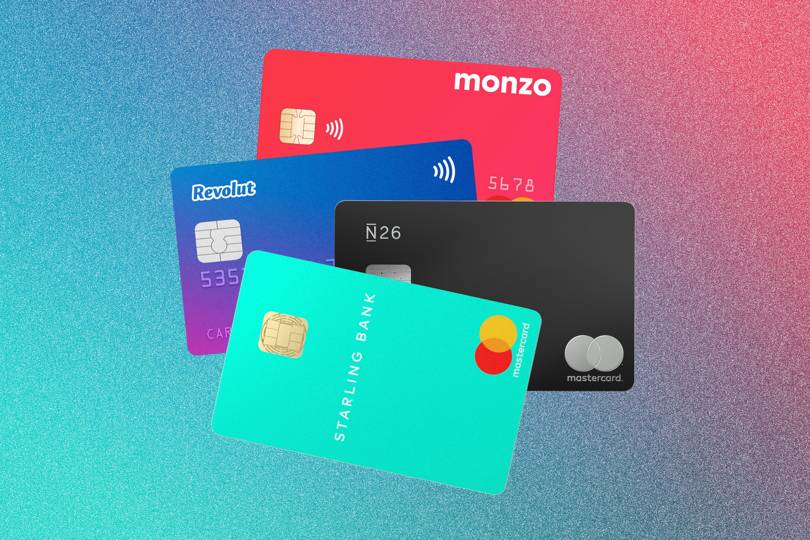
A new-wave of challenger banks is taking on Monzo and Starling
via Wired
Monzo, Starling and the rest of the new breed of app-focused banks are still no older than toddlers, but there’s already a host of challengers to these so-called challenger banks.
Challenger banks such as Monzo and Starling, as well as Revolut and N26, are already seen by smaller rivals as incumbents that are too big to please every customer – which is why there’s a second wave of challenger banks with niche specialisms, such as sole traders, starting your own business, fixed savers accounts, and so on.
Plenty of these small banks will scoff at the second-wave designation, as most were founded about the same time as Monzo, back around 2015 or so. But there’s no question the larger challengers have stolen the spotlight, leaving smaller startups to carve out a niche to get attention – whether that’s focusing on specific spending products like Atom, or making phone notifications sound like a meowing cat like Anna. “Specialisation has its advantages,” says Oliver Prill, CEO of Tide. “In the past, there was one universal banking model, and that’s clearly broken. In the future, there won’t be one model. I think a healthy market should provide choice.”
The government agrees, and has rolled out a range of measures to encourage competition in banking. That suggests, to Prill at least, that banking need not be a “winner takes all” market, but has plenty of room – and encouragement from regulators – to build a more varied marketplace. That could be bad news for bigger players, he suggests, those “universal” banks that tried to be everything to everyone. “They were successful because they had synergies internally,” he says, everything from the use of retail banking customers funds to offer loans to efficient use of internal IT. “These advantages are completely blown away by the constant wave of innovation.”
Not only are those benefits lost, but by trying to serve all customers, bigger banks — be they traditional high-street providers or larger challengers — may find it hard to keep up with the niche features offered by smaller, more focused players. “With a universal banking approach, you try to do everything yourself,” Prill says. “But you get category specific banks like ourselves coming along, and it’s extremely hard to compete.” If a mainstream bank is right for you, you’re already well served; if you have no fixed address, need regular foreign exchange services, or are a sole trader, the incumbents perhaps weren’t always there for you.
Before making the switch from the big five to a startup, double check all the fees that may apply to you, and it’s worth considering whether your deposit is protected in case that challenger goes out of business. If it’s a full bank – rather than just a payment card – that’s registered with the Financial Services Compensation Scheme (FSCS), you are protected up to £85,000. Those that aren’t full banks can still have a protected deposit scheme, but read the fine print before transferring your savings.
This Durham-based bank may rightly take issue with being referred to as a second-wave challenger bank, as it was founded back in 2014, which Atom claims makes it the first app-only bank in the country. Deposits are fully protected by the FSCS.
But this isn’t a regular bank. Instead, Atom is focused on fixed-term savings accounts — it’s easy to forget that banks can also be about interest rates and savings accounts, rather than just spending cards. For those whose only savings is an app-based roundup pot and the change down the back of the cushion, a fixed-term savings account may be a mystery. In short, choose a time frame to invest, from three months to five years, and you’ll earn a set amount of interest; however, you can’t get that cash back until the term is up. Atom also offers business loans and mortgages.
Bunq
This Dutch fintech has been around since 2015, but only landed in the UK a few weeks ago. Unlike some rivals, it’s a fully licensed bank, meaning customer cash is covered by the EU equivalent of the deposit guarantee scheme; what it does invest is done so ethically, the company claims. Like other challenger banks, it has the usual features of a slick mobile app with instant notifications, automatic categorisation, easy bill splitting, and savings tools such as roundups.
Bunq has a few extra tricks to set it apart, notably the ability to have multiple sub accounts; any mobile bank can do this, but Bunq’s sub accounts have their own IBAN, meaning they can be used for direct debits and online payments – and you can change which account links to your card. Bunq also links with Apple’s Siri, for those who want to talk their way through their finances. Plus, the cards are designed to be vertical rather than horizontal – they’ve got to set themselves apart somehow, after all.
Bunq offers personal and business accounts. The business card is €10 (£8.63) a month, with fees for some tasks such as paying invoices and direct debits; if you’re thinking of switching, it’s worth totting up how often you do such tasks to make sure you’ll not be paying more. Bunq has three personal accounts: a joint account for couples, at €10 a month for both; a premium account at €8 (£6.90) a month; and a travel card for free – frequent travellers should check out the “Slice Group” for tracking who paid for what on a holiday, handy for settling up after a hen-do. However, do note that there are additional fees across those accounts.
Monese
Founded in 2015, Monese offers current accounts; it isn’t a bank, so deposits are not protected by FSCS but are held separately in a protected account. While Monese has challenger features such as up-to-date account balance and instant card management, not all of its accounts offer roundups.
Monese has a range of accounts: a free “Simple” plan, with tighter – though still generous – spending limits; “Classic” at £5 a month; and “Premium” at £15 a month, with no foreign spending or ATM limits. Given there’s few additional fees, you’d be smart to start with a free account and only upgrade if you need the wider allowances on foreign currency spending or cash withdrawals.
What makes Monese stand out? There isn’t much, to be honest – it’s a cheap and easy to use spending card with a solid app. It’s certainly a welcome realisation that’s now the norm, though it may make solid startups like Monese struggle to get attention.
Tandem
This bank – and it is a fully licensed bank, so deposits are protected – offers the full challenger lineup: easy-to-use app with savings tools, spending notifications, and everything else you’d expect. However, rather than offer you a bank account, it works alongside your existing current account, pulling in your data to offer you advice on saving. This lets you stay at your high-street bank while still getting all the challenger features in a free app.
But then why is Tandem registered as a full bank? It also offers fixed savings account, letting you lock in a certain amount of cash to set aside for a specific amount of time, as well as credit cards. Tandem will analyse your spending, make a suggestion on how much you could set aside, and then let you do it. For those looking to track their spending and learn how to save better, Tandem could be a handy tool.
Tide
Tide is not a bank, and it’s not for consumers but small businesses. Founded in 2015, the UK-based startup instead offers the equivalent of a current account; it’s an “e-money account” that’s effectively a pre-paid card, but holds funds equivalent to deposits in case of insolvency.
That said, you could be forgiven for thinking Tide is a bank, as it has all the features of one, including a full sort code and account number as well as outbound direct debits. With businesses in mind, Tide offers integration with accounting software Xero, invoice creation and payment, and access to credit via fintech Iwoca.
It doesn’t yet support cheque deposits, though cash deposits can be made at PayPoints and the Post Office for a fee, and there’s as yet no support for international payments. Opening an account is free, and there’s no monthly cost; instead, customers pay for what they use, with a 20p fee for bank transfers and £1 for a withdrawal or deposit at the Post Office.
Who is this for? If you’re starting a small business and want to get set up quickly and cheaply, Tide could be for you. It could also appeal if you’re already in business but fed up with your current bank. But take the time to suss out Tide’s limitations – if some of your customers pay via cheque, this isn’t the challenger card for you. Small companies should also consider Coconut and Anna, as well as first-wave challenger Starling, which also offers business accounts.





